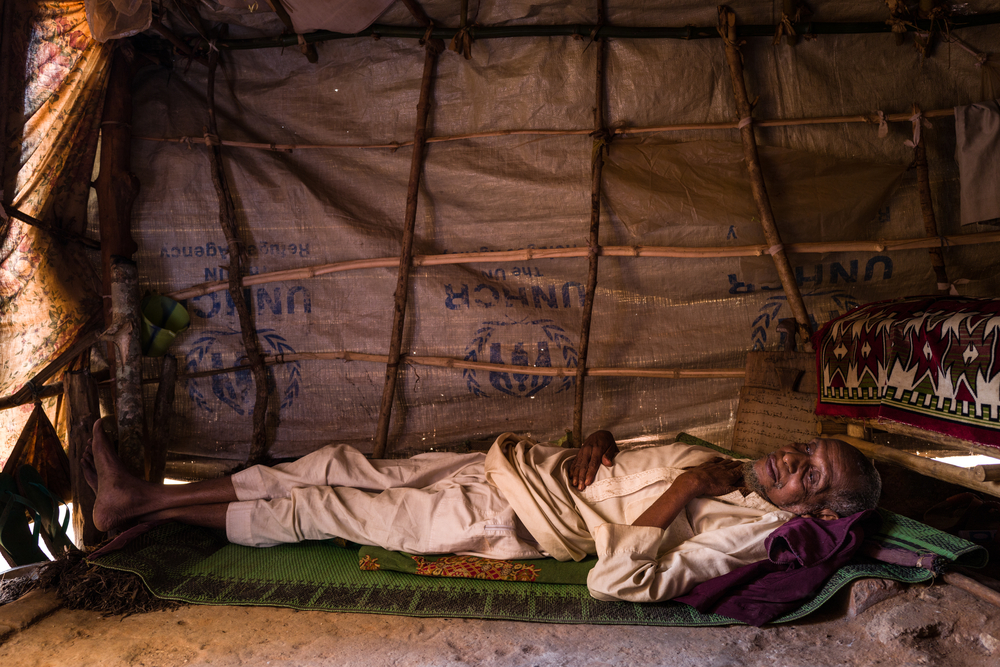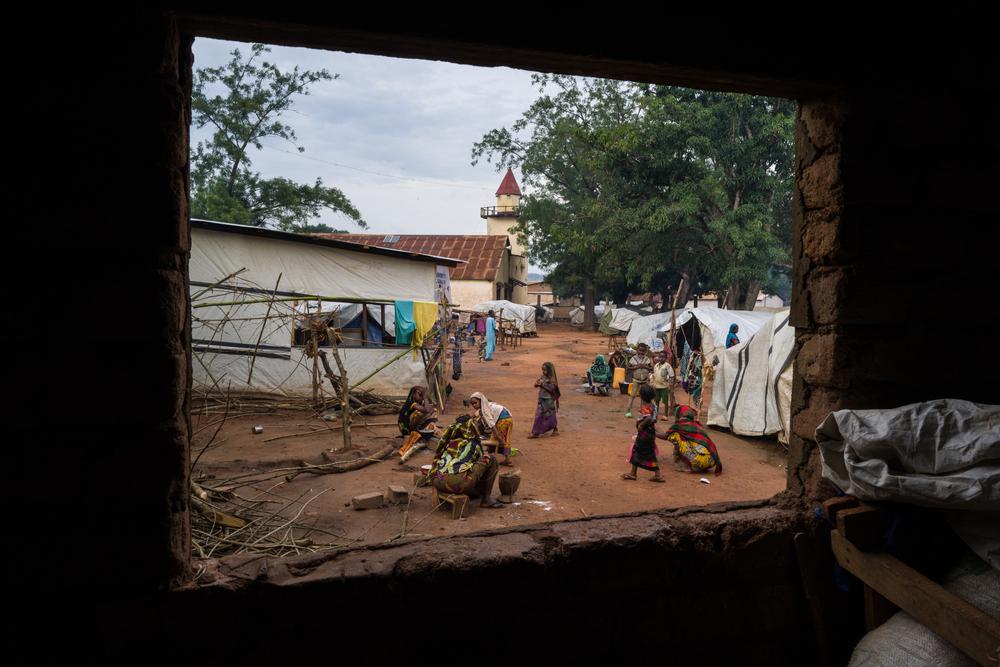In the past seven years, 55-year-old Youmusa Aguida and his family have been uprooted four times because of fighting in the Central African Republic. In 2016, they arrived near the town of Bambari, where they settled in a camp for displaced people called Elevage, together with other people from the semi-nomadic Peul community.
Youmusa thought that his family had finally found safety. But after a period of relative quiet, a new wave of violence hit the country at the end of 2020, linked to the national election process. As clashes broke out in Bambari, all the camp’s 8,500 residents were forcibly expelled on 5 June. All buildings, including mosques, shops and a malaria point set up by Médecins Sans Frontieres (MSF), were burned to the ground.
This latest eruption of violence proved to be too much for Youmousa’s elderly mother. “She wasn’t able to cope with one more change,” says Youmousa. “After we got kicked out from Elevage, she refused to eat, she didn’t sleep and hardly spoke. She died last week and we buried her in the Bambari cemetery, a long way from her hometown.”
Like most of the people who were forced to leave Elevage camp, Youmousa and his family now live in the compound of Bambari’s central mosque, while others are being hosted by local families. Living conditions around the mosque are dire. People share small, crowded rooms, others sleep in makeshift shelters. The rainy season makes the situation worse.

Yougouda Bangbagui, 73, lying down in his tent in the Central Mosque of Bambari. [© Lys Arango]
The hardest thing for me is feeling useless, because we are entirely dependent on humanitarian aid. I would like to go back to the land we abandoned near Elevage, but in order to cultivate we need to bring our work utensils. The authorities, if they see you with a machete, they arrest you. So, we are completely blocked.
I pray every day that they take us out of here, that they take us wherever, but somewhere where we can live in peace.
Living in constant fear

Hawa Oukarou has 9 children and they sleep all together in a corner of the classroom inside the mosque in Elevage. There are two other families with whom they share the space. [© Lys Arango]
People living in the makeshift camp do not feel safe. Forty-year-old Hawa Oukourou and her husband have not left the mosque since they arrived. She says she is afraid of being arrested because they don’t have identity cards. They sometimes send their children to find firewood and food. But she worries about her eight young daughters.
“When they leave the mosque, I worry that something could happen to them, that maybe they won’t come back, that someone steals them from me,” says Hawa. Her husband, Rebeau Bouda, says he can barely sleep because of the worries. He feels bad about not being able to feed and protect his family.
“My dream is to find a place where we can settle forever, where no one can kick us out,” he says. “I would like to speak to the armed groups and ask them: what do they gain by generating so much pain?”
The cycle of violence continues.
In mid-August, 17-year-old Sallet Abdoulay returned from herding his cows outside the town when an armed man on a motorbike suddenly stopped and fired shots at him, leaving him bleeding on the floor.
A friend later managed to get the young man to the MSF-supported hospital in Bambari, where doctors were able to remove a bullet from his abdomen and stabilise him. But the damage to Sallet’s spine was so severe that our teams had to transfer him by plane to the capital, Bangui, to get specialist treatment.
His 57-year-old father never left his side. He, too, almost lost his life once, and spent three months in the hospital in Bambari. The machete scars that cover his body tell a story of many years of suffering.

Doctors from the Bambari hospital prepare Sallet Abdoulai's departure and transport him to the MSF vehicle. [© Lys Arango ]
Children with no future
The ongoing conflict has also left more invisible scars, especially on children. Young boys roam the streets of Bambari, selling kola nuts to make a meager living. Most are from Lima, a village close to Bambari, that was attacked by an armed group in 2014. The children have all lost one or both parents.

All the teachers have left Bambari because of the conflict and it makes me sad because I know that if I don't learn I won't be able to become a great man in life. I would like to become a doctor, to be able to heal people. War means blood, means death.
Idrissa, 10, lives with his mother and younger brother in the centre of the town. “When my father was killed, my mother fell into deep sadness. She spends the day crying, she doesn’t do anything else. So it’s my turn to go out and work,” he says.
“I walk around all day, from seven in the morning to seven at night, selling kola. Until last year, I went to school, but now it’s closed. All teachers have left Bambari because of the conflict and it makes me sad. I know if I don’t learn, I won’t become a great man,” says Idrissa.
The children here have witnessed a lot of violence in their young lives and are at risk of being recruited by armed groups while being alone in the streets. But they haven’t given up hope for a better future.
“My dream is to become president of the Central African Republic,” says 12-year-old Amadou. “I would give money to poor people so that they could make a living from trade and not from arms.”
